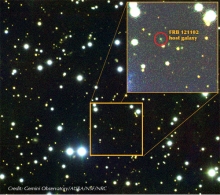Bell Let’s Talk today announced a donation of $250,000 to McGill University’s Montreal Neurological Institute and Hospital – known as The Neuro – to fund the development of online mental health resources focused on the needs of multicultural communities.


To help spur artificial-intelligence research in Montreal, Microsoft will provide a gift of $1 million to McGill University.
A team of researchers at the Research Institute of the McGill University Health Centre (RI-MUHC) has found an epigenetic modification that might be the cause of 15% of adult cancers of the throat linked to alcohol and tobacco use. This is a first in the field of epigenetics and the researchers are hopeful that the discovery can blaze a path in the development of new, targeted, more effective treatments that could arise over the next few years.

In separate clinical trials, a drug called ocrelizumab has been shown to reduce new attacks in patients with relapsing remitting multiple sclerosis (MS), and new symptom progression in primary progressive MS.
Three studies conducted by an international team of researchers, which included Amit Bar-Or and Douglas Arnold from the Montreal Neurological Institute and Hospital of McGill University, have discovered that ocrelizumab can significantly reduce new attacks in patients with relapsing MS, as well as slow the progression of symptoms caused by primary progressive MS.

Astronomers have pinpointed for the first time the home galaxy of a Fast Radio Burst, moving scientists a step closer to detecting what causes these powerful but fleeting pulses of radio waves. FRBs, which last just a few thousandths of a second, have puzzled astrophysicists since their discovery a decade ago.


Have you ever met someone who just wasn’t into music? They may have a condition called specific musical anhedonia, which affects three-to-five per cent of the population.
Researchers at the University of Barcelona and the Montreal Neurological Institute and Hospital of McGill University have discovered that people with this condition showed reduced functional connectivity between cortical regions responsible for processing sound and subcortical regions related to reward.

Québec Science magazine has selected its 10 Discoveries of the Year for 2016, and McGill researchers figure in six of them. The annual list highlights top scientific research from across Quebec.
Two of the discoveries were led by researchers at McGill:


Despite ongoing global pollution, researchers have discovered that levels of mercury in seabirds off the coast of B.C. have remained relatively stable over the past 50 years. Surprisingly, mercury in seabirds is now actually slightly lower. This might appear to be good news, but unfortunately it is due to a decline in fish stocks near the surface which has forced seabirds to change their diet, and in the process to feed in areas low in bacteria (known as sulfate-reducing bacteria) which act to control the levels of mercury in their bodies.

From laptops to cellphones, today’s technology advances through the ever-increasing speed at which electric charges are directed through circuits. Similarly, speeding up control over quantum states in atomic and nanoscale systems could lead to leaps for the emerging field of quantum technology.

The total shoreline of the world’s lakes is more than four times longer than the global ocean coastline. And if all the water in those lakes were spread over the Earth’s landmass, it would form a layer some four feet (1.3 metres) deep.
Lottery tickets may be fun-filled and exciting presents, but they are not suitable gifts for minors. Studies suggest that gambling is a popular yet risky activity among youth. Additionally, researchers have reported a correlation between age of gambling onset and problem gambling later in life. Lottery play is sometimes an initial introduction to gambling activities for minors.

Assessing the risks that toxic chemicals pose to natural ecosystems is a huge challenge, given the thousands of chemicals that require testing. But the task is expected soon to become less daunting, thanks to a new tool being developed by McGill University researchers.

McGill University, in association with Lawrence and Frances Bloomberg and Manulife, is pleased to announce that Dr. Thomas Robinson, a Stanford University professor of Pediatric Medicine and pioneer in using novel motivational techniques to combat childhood obesity, is the winner of the 2016 Bloomberg Manulife Prize for the Promotion of Active Health.
